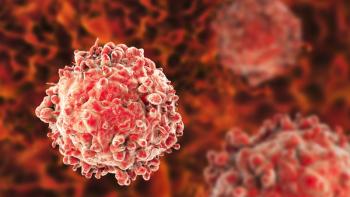
More Women at High Risk of Ovarian Cancer Opt for Testing, Preventive Surgery After Genetic Counseling
Women who are at high risk of ovarian cancer are more likely to undergo preventive ovary removal if they are proactively offered genetic counseling, a new study has found.
M. Robyn Andersen, PhD, MPH
Women who are at high risk of ovarian cancer are more likely to undergo preventive ovary removal if they are proactively offered genetic counseling, a new study has found.
A randomized clinical trial conducted by researchers at the Fred Hutchinson Cancer Research Center looked at 458 Seattle-area women who reported a BRCA1 or BRCA2 mutation and/or a personal or family history of breast cancer, but had no prior ovarian cancer diagnosis and no prior preventive ovary-removal surgery.
Half of the study participants were randomized to receive genetic counseling and half to receive standard care. The study participants were then followed over 4 years and surveyed about their use of genetic counseling, genetic testing, and pelvic surgery, including prophylactic risk-reducing bilateral salpingo-oopherectomy, or RRSO.
Women offered genetic counseling were more likely than the standard care group to undergo genetic testing (32.5% vs 8.6%) and ovary-removal surgery in the 2-year period of study follow up (10 women in the intervention group vs 3 in the usual care group). There was some concern that these positive changes could be associated with elevations in women’s levels of worry about and perceived risk of ovarian cancer.
“We found that genetic counseling can provide women with what they need to pursue risk-reduction activities that could save their lives,” said M. Robyn Andersen, PhD, MPH, who led the study and is a member of the Public Health Sciences Division at Fred Hutchinson Cancer Research Center. “We also found that it appears to be possible without causing women undo concern about their risk for ovarian cancer.”
According to the National Cancer Institute, women with a BRCA1 or BRCA2 mutation are at highly elevated risk for both breast and ovarian cancer. It is estimated that 55% to 65% of women with a BRCA1 mutation and about 45% of women with a BRCA2 mutation will develop breast cancer by age 70. Estimates of lifetime risk of ovarian cancer among BRCA1/2 carriers range from 16% to 45%.
Many women with a family history of breast cancer who carry a BRCA mutation know they are at increased risk of breast cancer but may not realize they are also at an increased risk for ovarian cancer, Andersen said. A lack of knowledge that a family history of breast cancer confers a risk for carrying a genetic mutation that also increases ovarian cancer risk, coupled with a lack of genetic testing to identify such mutations, can be a significant barrier to informed decision making.
“Most high-risk women with BRCA mutations have a family history of breast cancer and know about their relatives who died of breast cancer. Fewer have had relatives with ovarian cancer… It isn’t an intuitively obvious jump to go from, ‘My mom and her sisters had breast cancer’ to ‘I’m at high risk for ovarian cancer,’” Andersen said.
“Many women, even those who know a lot about their elevated risk for breast cancer, haven’t heard much or anything, really, about their ovarian cancer and their elevated risk for it.”
Newsletter
Knowledge is power. Don’t miss the most recent breakthroughs in cancer care.
















































































